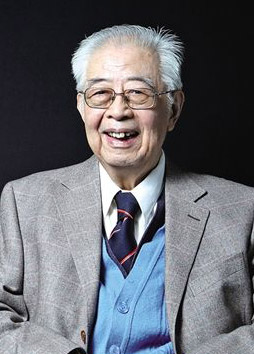
BS (Ch. E.), Central University, Nanjing, 1947; MS (Ch. E.), U. Michigan, USA, 1950; D. Sc. (Hon.), Chinese Univ. of Hong Kong, 1998. Zhang's research career began in DICP since 1951, where he was Assistant Professor 1951-53, Associate Professor 53-62 and Professor since 1962. He served as Director, DICP, 1986-90 and President, National Natural Science Foundation of China, 91-99. Presently, he is Honorary President, NSFC and a member of CAS Presidium. He was elected as Member, Chinese Academy of Sciences, 1980 and elected to Fellow, Third World Academy of Sciences, 1992.
His research interest was fluidized catalytic hydrogenation of CO to liquid fuels in the fifties, when he collaborated in developing a high performance fluidized-bed nitrided iron catalyst. Then, in the sixties, he led a team to investigate the combustion of rocket propellants and in rocket engines, and jointly with Prof. Guozhong He, developed a multilayer flame theory that gave a plausible dimension of the microflames above the propellant surface.
He was involved in the study of novel chemical laser systems since the seventies and of excited molecular species via laser spectroscopic techniques since the early eighties. In particular, jointly with his student, he developed a folded double resonance (DR) scheme that succeeded in unraveling the diffuse spectrum of very short-lived predissociative species and rotational constants and lifetimes for such species. Then, they succeeded in studying the Jahn-Teller splitting and related nonadiabatic Fermi resonance via the DR technique. Quantum state resolved rovibronic collisional energy transfer of electronically excited diatomic species has been studied in detail, in collaboration with Prof. Guohe Sha, obtaining a host of propensity rules that can be interpreted via a semi-empirical quantum scattering theory.
Prof. Zhang was four times awarded the State Natural Science Prize. He was also awarded the Tan Kah Kee Prize, the HLHL prize, and a number of other prizes. One of his students was the first to win the Chien-Shiung Wu Award in Physics in view of his work connected with his master's thesis.